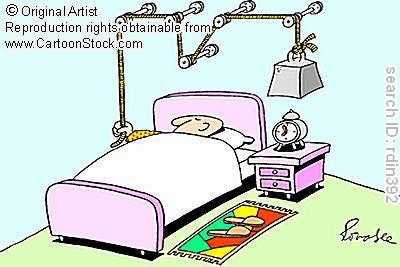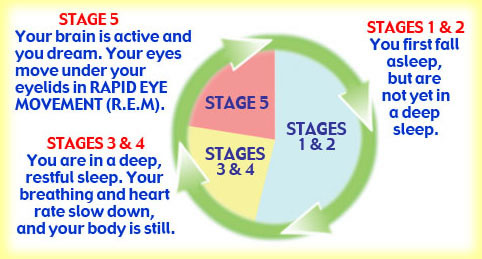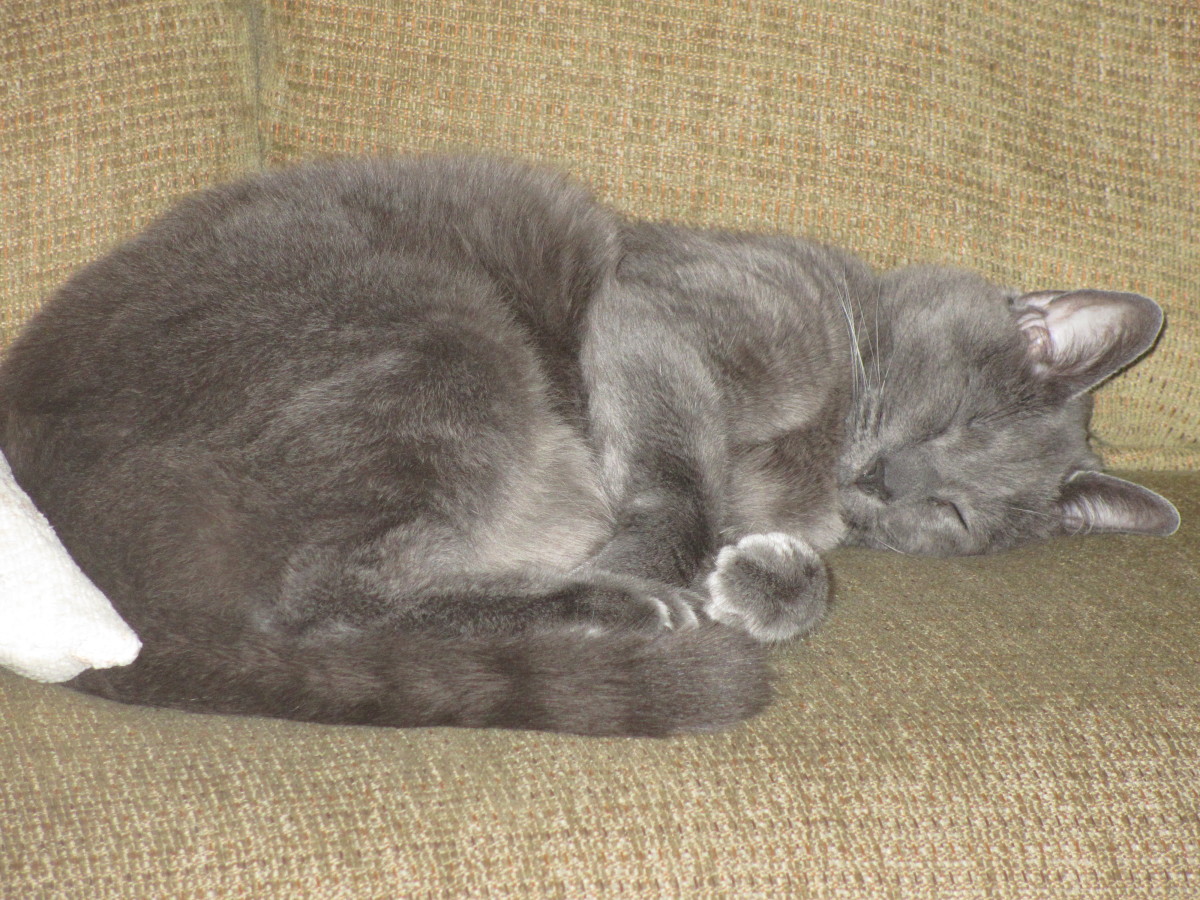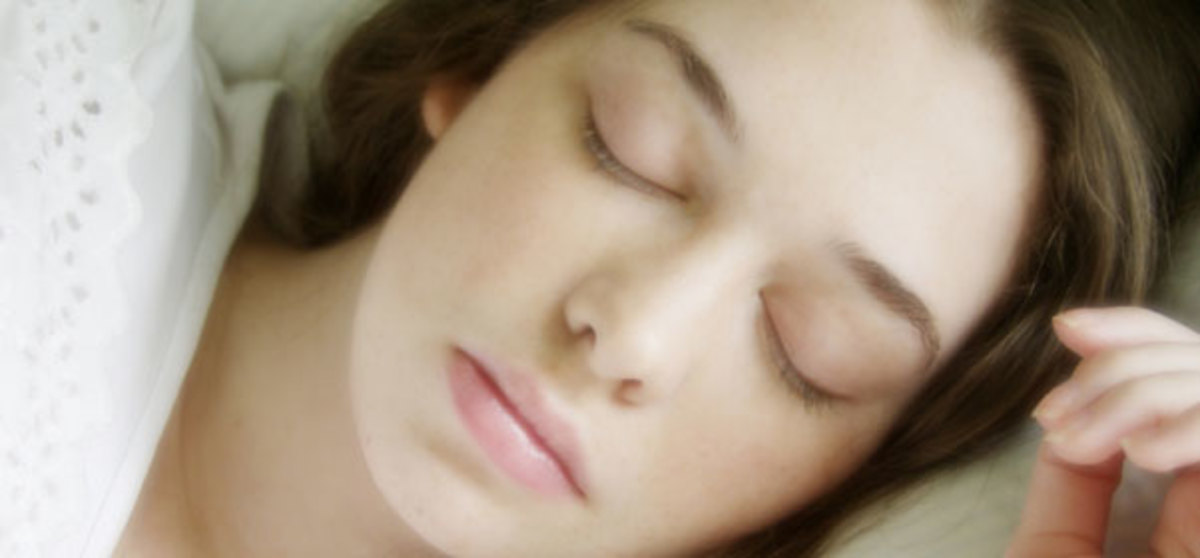Sleep stages: What goes on when you sleep?
Introduction
Sleeping: dreams, snoring, sleep-walking, REM, the list goes on. What does all this mean? Sleep is one of the most essential parts of a humans life. In fact, it is so important, we spend spend a third of our life doing it! Without sleep, the body cannot function and would quickly fail.

The Stages of Sleep
There are five stages of sleep presented to you in order. Stages one through four are non-REM (rapid eye movement) sleep, while the fifth is.
- Entering sleep mode: This stage only lasts about five minutes of the 90 minute sleep cycle. Eye and body movements slow down and you are easily woken upon a disturbance. This is also the stage where sudden limb jerks occur. This is because your brain is in transition and when disturbed, the sleeper feels as though he or she is falling. This is a normal occurrence.
- Light sleep: About half of your non-REM sleep occurs in this stage. It lasts anywhere from 10-20 minutes. Eye and limb movements completely stop. Your brain waves (which is the measure of brain activity) also slow down. Because of this, body temperature and heart rate decrease.
- Deep Sleep: It is now very difficult to wake up and, if woken up, the sleeper will become disoriented.
- Deeper Sleep: The most intense deep sleep. Brain waves are extremely slow. This stage is responsible for restoring the body physically because blood flow is increased in the muscles. If this stage is disturbed or too short, the sleeper will feel deprived and groggy throughout the day.
- REM sleep: REM sleep is responsible for renewing the mind. Heart rate and blood pressure increase , breathing becomes shallow and irregular, and dreaming occurs. Eyes move rapidly, but muscles become immobile. Men may develop erections in this stage as well.

The Sleep Cycle
The sleep cycle is not a perfect science, meaning the amount of time changes for each stage as the cycle repeats. Deep sleep occurs toward the beginning of your total hours of sleep. This explains why if you wake up frequently in the middle of the night, it would be toward the end of your total hours of sleep, where light sleep is dominant.
The Important Stages
Deep Sleep-->Deep sleep, as stated before, repairs the body physically. It also builds up energy for tomorrow. Without an adequate amount of deep sleep, the body's immune system will break down quickly, repairing muscle or bone injuries will take much longer, and overall growth and development will cease.
REM Sleep--> REM sleep refreshes the mind. While you are in REM sleep, the brain processes and 'stores' everything that happened or learned that day. The brain also resupplies chemicals such as serotonin and dopamine, which are responsible for keeping a 'good mood.'
Wrong Assumprions About Sleep
- I don't have to get eight hours of sleep; In the morning, I can take a five hour energy or drink a gallon of coffee. That will make everything worse. Your better off not sleeping enough and not taking the five hour energy or the coffee. If you sleep for say four hours a night and drink a red bull every morning, your drastically increasing your chance for serious diseases such as diabetes. Since you are not getting sufficient sleep, your body slows down certain organs and functions, like the liver and metabolism, to help conserve energy. The increased sugar levels aren't being processed quick enough,and soon you have a problem.
- I can stay up all night tonight and sleep in tomorrow with no damage at all. Wrong again. Have you ever slept for an extremely long time (12, 13+ hours), assuming you are an adult? if yes, you probably experienced morning fatigue due to 'oversleeping.' Because you slept more than the body is accustomed to , the next three to five hours will feel sluggish and blurry.
- Taking naps really helps! Sure it feels good, but it is not helpful in the long run. Even an hour nap barely restores energy, since deep sleep is only for a couple minutes. Your just going to wake up groggy anyway. More importantly, it messes with your biological clock. Consistency is the most important thing for a human. If you go to bed at the same time and wake up at the same time every day, you will see tremendous benefits. If you want to sleep in on the weekends, only an hour or two more. Stay consistent.
Sleep Deprivation Signs
- Need an alarm clock and/or snooze button to wake up in the morning: You read correctly; this isn't a good sign. Waking up in the morning should feel refreshing and 'good.' In theory, every single person is supposed to be a 'morning person.' If you are not, you are sleep deprived.
- Feel the need to sleep in on weekends and off days: We all need a little extra sleep after a hard weeks work or school. If its more than one or two hours, its too much.
- Need to take a nap to finish off the day
- Become tired after large meals: The extra food requires more energy that the body doesn't have, and therefore the brain tells the body to shut down a sleep to gain the necessary energy.








